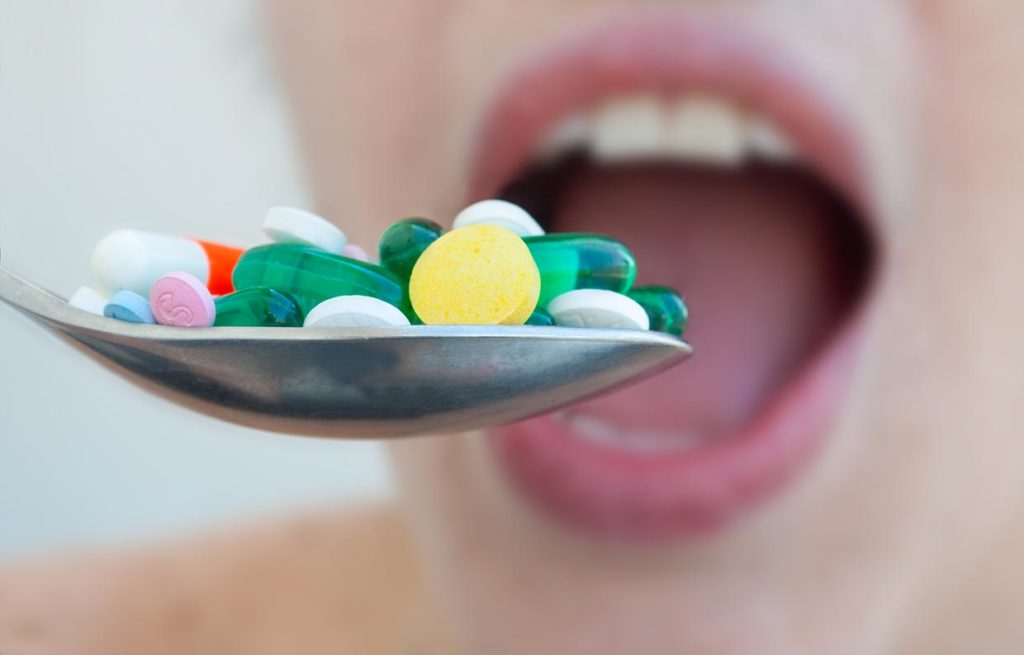Increasing evidence continues to suggest that vitamin D deficiency may play a part in hypothyroidism. For example, researchers have mentioned a possible relationship between low vitamin D levels and Hashimoto’s thyroiditis (the leading cause of hypothyroidism), as well as Grave’s disease, and other autoimmune thyroid disorders. These links have led some to wonder if Vitamin D is an effective hypothyroidism treatment.
In the following paragraphs, we will assess the association between both ends of the spectrum to ascertain if vitamin D can help treat hypothyroidism.
What Is Hypothyroidism?
Hypothyroidism is an autoimmune condition that occurs due to the thyroid’s inability to secrete sufficient hormones.
The thyroid is a gland at the nape that the body charges with the production of energy-regulating hormones. The thyroid supplies energy to every organ in the body, thereby controlling crucial functions, including the digestive system’s effectiveness and how the heart beats. Therefore, it’s clear that insufficient amounts of these hormones will significantly affect the body’s efficiency.
Underactive thyroid occurs predominantly in women, sexagenarians, and above, but is not limited exclusively to them. It is called subclinical hypothyroidism when the condition occurs early and mildly.
Symptoms of Hypothyroidism
Underactive thyroid displays varying symptoms from person to person, as the condition’s severity affects which signs occur and when. Sometimes, it may be challenging to identify these symptoms.
Early signs often include recurring fatigue and weight gain, two common occurrences as you age, irrespective of your thyroid’s effectiveness. Therefore, you may fail to realize the symptoms are thyroid-related until more of the following materialize:
- Dry, thinning hair
- Dry skin
- Puffy face
- High blood cholesterol
- Depression
- Impaired memory
- Constipation
- Constant cold
- Muscle weakness, stiffness, tenderness, and aches
- Difficulty breathing
- Hoarseness
- Menstrual changes or fertility difficulties
Most of the above symptoms are consistent with aging, so you may experience them even without a thyroid-tied condition. Therefore you should be on the lookout for the occurrence of many of these signs simultaneously or within a short time without an explicable cause. These symptoms worsen as the condition progresses.
What Is Vitamin D Deficiency?
Vitamin D is an important prohormone (or hormone precursor) of the body. Therefore, it plays vital roles in an individual’s health by assisting with numerous bodily functions. Some uses of this vitamin are:
- promotion of healthy bones and teeth
- support of brain, immune, and nervous system health
- regulation of insulin levels
- support of diabetes management
- support of cardiovascular health and lung function
- the positive influence of genes associated with cancer
Vitamin D is unique because, unlike all other vitamins, the body can produce it through exposure to sunlight. So, therefore, it’s also called the “sunshine vitamin.”
It is important to note that should vitamin D become deficient in the body, it will have certain negative results on health.
Causes of Vitamin D Deficiency
- Insufficient Exposure to Sunlight: Vitamin D deficiency is becoming more prevalent in sunny regions of the world. This assertion sounds illogical, but you realize it isn’t, considering the measures most people take to prevent skin cancer and sunburn. Unfortunately, it seems that the use of sunscreen may have been taken too far.
- Inefficient Skin Production: The skin may fail to produce enough vitamin D due to specific health issues, such as renal diseases, liver diseases, and gastrointestinal disorders. Should such persons use sunscreen all the time, then there may be vitamin D deficiency.
- Poor Diet: Certain foods and supplements supply the body with Vitamin D. If you avoid sunlight and have some health issues preventing optimal vitamin D production, eating some foods such as cod liver oil can help increase the amounts of vitamin D.
Case Studies Linking Hypothyroidism to Vitamin D Deficiency
Let’s look at some studies that have linked underactive thyroid to the “sunshine vitamin” to see if we can conclude.
- A verified study in Cellular and Molecular Immunology reported that 72% of patients suffering from thyroid-related autoimmune disorders were vitamin D deficient. In comparison, only 31% of hypothyroidism-free persons had low vitamin D levels.
- A publication in the National Center for Biotechnology Information conducted on persons with Hashimoto’s thyroiditis in Greece found that 85% of the patients had deficient levels of the sunshine vitamin and pro-normal levels of antithyroid antibodies. This study treated the patients to 1,200 – 1,400 IU (international units) of vitamin D daily for 120 days, which led to a substantial fall in the antithyroid antibodies.
- Another research published in the International Journal of Health Sciences concluded that hypothyroidism patients suffered hypovitaminosis D and hypocalcemia (another condition caused by vitamin D). Both conditions affected the severity and degree of hypothyroidism. Therefore, this study encouraged the treatment of underactive thyroid with vitamin D supplements.
Does Vitamin D Supplementation Help to Treat Hypothyroidism?
According to real world data, collected and analyzed by StuffThatWorks.health, vitamin D supplementation ranks as the second most effective treatment for hypothyroidism.
Other studies highlighted earlier also strongly suggest that vitamin D supplementation is an effective treatment for hypothyroidism.
How to Supplement with Vitamin D in Hypothyroidism Treatment
There are two types of vitamin D supplements: vitamin D2 (ergocalciferol) and vitamin D3 (cholecalciferol).
While most people prefer cholecalciferol, there isn’t sufficient proof to claim that it’s better than ergocalciferol when both are consumed in acceptable doses.
Vitamin D supplements are available in capsules, chewable tablets, gummies, and liquids. Prohormone is also common in calcium supplements and multivitamins. This availability in diverse sources means that you should carefully read the label of products you consume to determine the amount of vitamin D you’re getting, as unreasonably high consumption of vitamin D may be counterproductive.
The upper limit for persons aged nine and above is 4,000 international units daily. Using excessive amounts of vitamin D supplements may lead to nausea, appetite loss, vomiting, weakness, constipation, and weight loss. It may also lead to kidney damage and hypercalcemia, which disorients, confuses, and spoils heart rhythm.
As such, you should consult your doctor before turning to vitamin D supplementation.

Foods to Eat for More Vitamin D
The dangers associated with hyper-supplementation of vitamin D make it mandatory to consume the supplements with care. Therefore, it’s advisable to use only up to 1,200 – 1,400 IU in supplements and make up the rest through sunlight exposure and helpful foods.
However, few natural foods offer significant amounts of vitamin D. You may also find vitamin D-fortified foods, but these offer relatively small quantities. The following food sources are the best to consume for higher vitamin D consumption:
- Cod liver oil: 1,360 IU (1 tablespoon)
- Swordfish: 566 IU (3 cooked ounces)
- Salmon: 447 IU (3 cooked ounces)
- Tuna fish: 154 IU (3 water-packed ounces)
- Fortified orange juice: 137 IU (1 cup)
- Fortified nonfat milk: 119 IU (1 cup)
- Fortified yogurt: 80 IU (6 ounces)
- Sardines: 46 IU (2 drained pieces)
- Beef liver: 42 IU (3 cooked ounces)
- Egg: 41 IU (1 large)
- Fortified cereal: 40 IU (1 cup)
Conclusion
Hypothyroidism is an autoimmune condition that occurs due to the thyroid’s inability to secrete hormones. There is some evidence to suggest that vitamin D supplementation can be an effective treatment for this condition. Unlike other vitamins, vitamin D can be produced by the body through exposure to sunlight. Vitamin D can also be taken as a supplement, in the forms of vitamin D2 and vitamin D3. One should be careful not to hyper-supplement this vitamin and limit daily intake to 1200-1400 IU. In addition, vitamin D can be found in a variety of foods including several types of fish and cod liver oil.
